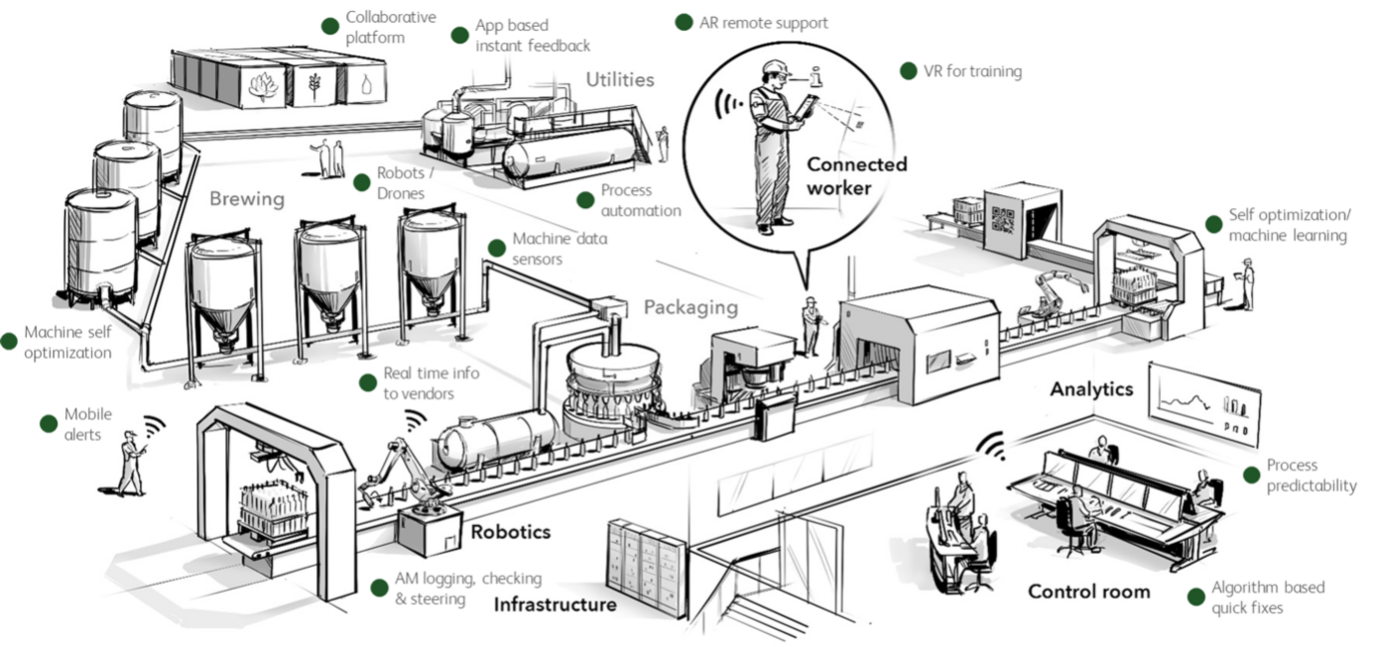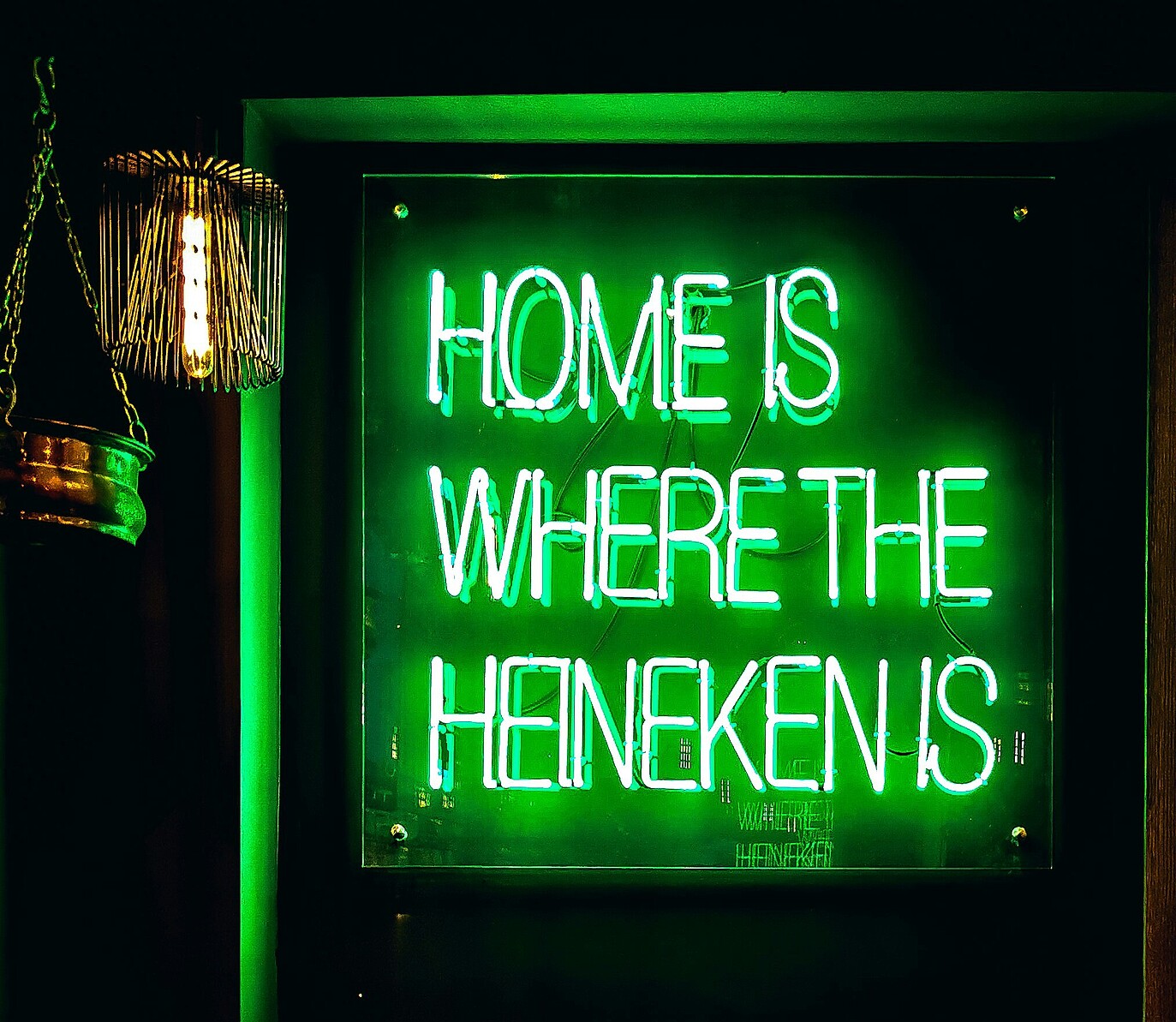

Blog: Thursday, 1 February 2024
Heineken – one of the world’s largest beer producers – with a vast global presence in over 190 countries, is not resting on the laurels of its 159-year legacy. Instead, it’s looking ahead and embracing AI-driven opportunities.
This article is a result of a Moonshot Thinking event with Ronald den Elzen, Chief Digital and Technology Officer at The HEINEKEN Company and written by Jovana Karanovic, Assistant Professor in the department of Technology and Operations Management at
Rotterdam School of Management (RSM), Erasmus University.
Heineken’s first Chief Digital and Technology Officer

Year 2023 has been remarkable in many ways, but for Heineken it’s memorable for one crucial fact: for the first time ever over 50% of all orders from bars, restaurants, and pop & mom shops came through their online platforms.
Heineken sees this as an opportunity to become the "best-connected brewer." For this vision to become reality, however, Heineken must make a radical shift in capabilities and a significant upscaling of their workforce to thrive in a data-driven environment.
Heineken's pivot towards a data-centric operational model exemplifies the shift from traditional manufacturing to a digital-first approach. This transition signals a broader trend in industries where legacy brands are increasingly competing in spaces dominated by digital natives.
The strategy for achieving this includes a digital route to consumers, leveraging data for insightful and predictive analytics, streamlining processes through simplification and automation, establishing a secure digital infrastructure, and fostering a digitally savvy organisation. This framework is crucial for Heineken to harness the data it collects for the dual benefit of its customers and its corporate growth.

Heineken has embraced AI across its operations. “Massive progress has been made with AI in areas like revenue management, commercial mix optimisation and sales execution,” explains Ronald den Elzen, Heineken’s Chief Digital and Technology Officer.
In Mexico, a key market for Heineken, the adoption of AI has revolutionised distribution, with 80% of orders now being placed online. The power of AI is harnessed to direct sales strategies, advising on which bars to target for promotional activities or to prevent customer churn. Shelf-image recognition technology, integrated into refrigerator doors, exemplifies Heineken's innovative approach in emerging markets.
Revenue management also reaps the benefits of AI. With Heineken spending billions on advertising, AI not only optimises where and when to advertise but also informs strategic decisions on promotional activities based on complex algorithms that draw on a wealth of internal and external data.

In manufacturing, Heineken's breweries have become hives of efficiency. “Twenty-five years ago, 70 operators were sharing one PC on one packaging line. Today, 30,000 operators worldwide use digital tools every day”, explains Ronald den Elzen. 3,500 machines are now connected with IoT to the cloud, highlighting a shift towards a technologically advanced supply chain.
The user experience is continually refined through intelligent automation, ensuring accuracy in understanding consumer patterns. For example, AI helps understand when Heineken or its sister brand Amstel sells the most, in which locations, to which type of consumers and so on. It learns through AI, and adjusts, becoming better every day.
The implementation of AI in Heineken's operations, from sales strategies in Mexico to global revenue management, is not just about staying relevant but also about redefining efficiency and precision in customer engagement. However, this reliance on technology raises questions about the balance between human intuition and algorithmic suggestions.
While AI provides data-backed strategies for optimising sales and advertising spend, there could be nuanced market dynamics and consumer behaviours that might elude even the most sophisticated algorithms.
The company's focus on digital transformation also presents challenges in terms of workforce adaptation. Upscaling to a data-driven world necessitates not only technical training but also a cultural shift within the organisation. Employees must embrace continuous learning and adaptability as core competencies in an environment where change is the only constant.
Moreover, Heineken's goal of reducing direct and indirect greenhouse gas emissions to net zero by 2030 indicates a commendable dedication to sustainability. However, it also reflects the increasing pressure on corporations to address environmental concerns as part of their operational and ethical standards. Utilising AI to achieve these goals could set a precedent for how large companies can leverage technology to meet rigorous environmental regulations and consumer expectations.
Heineken’s strategy reflects an inference that the future of industry giants lies not in the continuation of their traditional practices but in their ability to adapt and integrate new technologies such as AI. The company's transformation could indeed serve as a valuable case study on the integration of AI within a non-digital native company. Yet, it also serves as a cautionary tale that underscores the need to maintain a balance between embracing technological advancements and preserving the human elements that underpin customer relations, corporate culture, and ethical decision-making.


Science Communication and Media Officer
Rotterdam School of Management, Erasmus University (RSM) is one of Europe’s top-ranked business schools. RSM provides ground-breaking research and education furthering excellence in all aspects of management and is based in the international port city of Rotterdam – a vital nexus of business, logistics and trade. RSM’s primary focus is on developing business leaders with international careers who can become a force for positive change by carrying their innovative mindset into a sustainable future. Our first-class range of bachelor, master, MBA, PhD and executive programmes encourage them to become to become critical, creative, caring and collaborative thinkers and doers.
